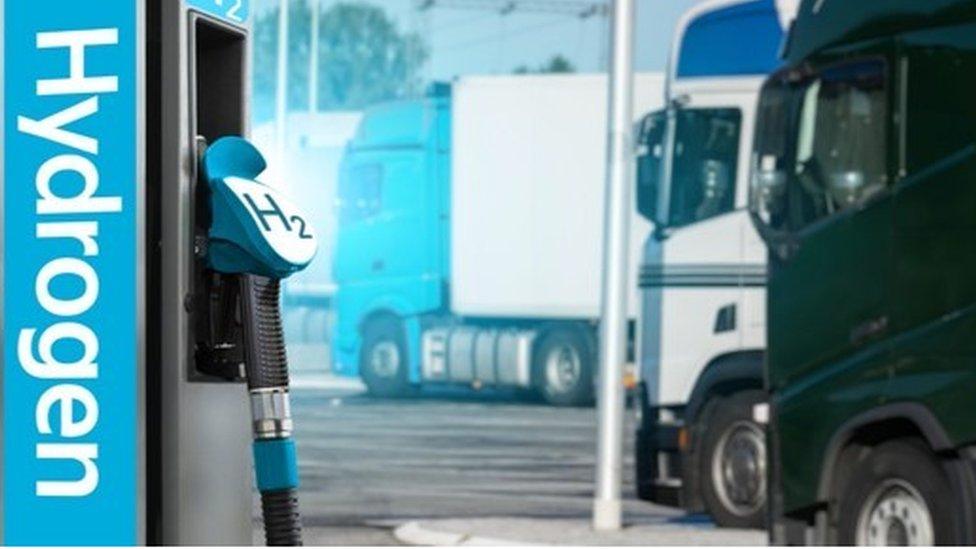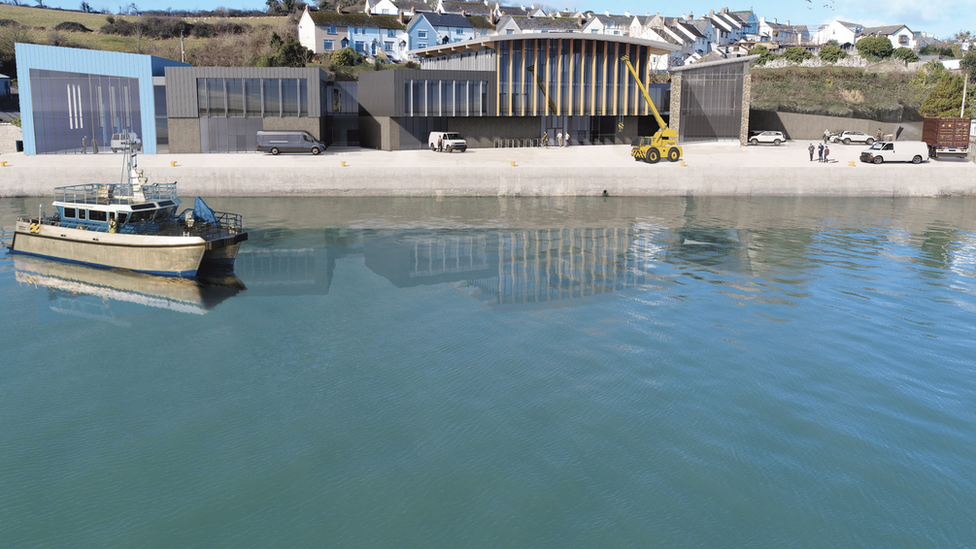Hydrogen fuel plant for vehicles could be built in Exeter
- Published

The exact location of the pilot plant has not yet been confirmed
A pilot plant supplying hydrogen fuel for vehicles could be built in Exeter by 2026, it has been revealed.
The Exeter H2 Hub consortium, which is behind the plans, said it could supply fuel for vehicles owned by utility companies, councils and the public.
It said it planned to apply for government support "to make hydrogen refuelling a reality for the region".
Hydrogen developer, Tower Group, said the UK needed more investment in hydrogen infrastructure.
Alex King, CEO of Tower Group, which is leading the consortium, added: "If we are going to truly level up the country and deliver on the promises of net zero, then we must accelerate our efforts and bring investment and jobs to those places desperately in need.
"This pilot project takes us one step further towards this goal, with many more to come."
The company also has plans to build a hydrogen production plant in north Devon to supply fuel for clean energy marine vessels.
The Exeter consortium includes Wales & West Utilities (WWU), the University of Exeter's Centre for Future Clean Mobility and clean vehicle innovator, EMotive, among others.
A spokesman said the exact location of the proposed plant was currently confidential but indicated it would be "adjacent to Exeter Airport".
He said the plans would be put to East Devon District Council shortly.
Net zero targets
WWU maintains 1,300 vehicles in its fleet, half of which could require hydrogen to meet its net zero targets.
Stephen Offley, WWU fleet manager, said he believed hydrogen would "soon become the most operationally satisfactory zero emission solution for high energy demand vans".
He added: "Consequently, we expect to deploy hydrogen-fuelled vans at the earliest practicable opportunity, initially in smaller clusters, that operate within a convenient radius of the hydrogen refuelling location."
There are also plans to run a pilot project at the plant with Cullompton-based EMotive investigating opportunities to retrofit existing fleet with hydrogen combustion engines and or fuel cell electric powertrains.
Five to 10 of WWU's vehicles will be used initially but if the pilot goes well it is hoped the facility could be used to retrofit and maintain the thousands of vans and larger vehicles in the region.
Emotive's managing director Dan Regan said it had been working on clean commercial vehicle designs for more than five years.
He said: "This project will take great steps in achieving better air quality, more sustainable industries and shine a light on the south west as a leader in greener transport and energy systems."

Follow BBC Devon on X (formerly Twitter), external, Facebook, external and Instagram, external. Send your story ideas to spotlight@bbc.co.uk, external.
Related topics
- Published29 November 2023
